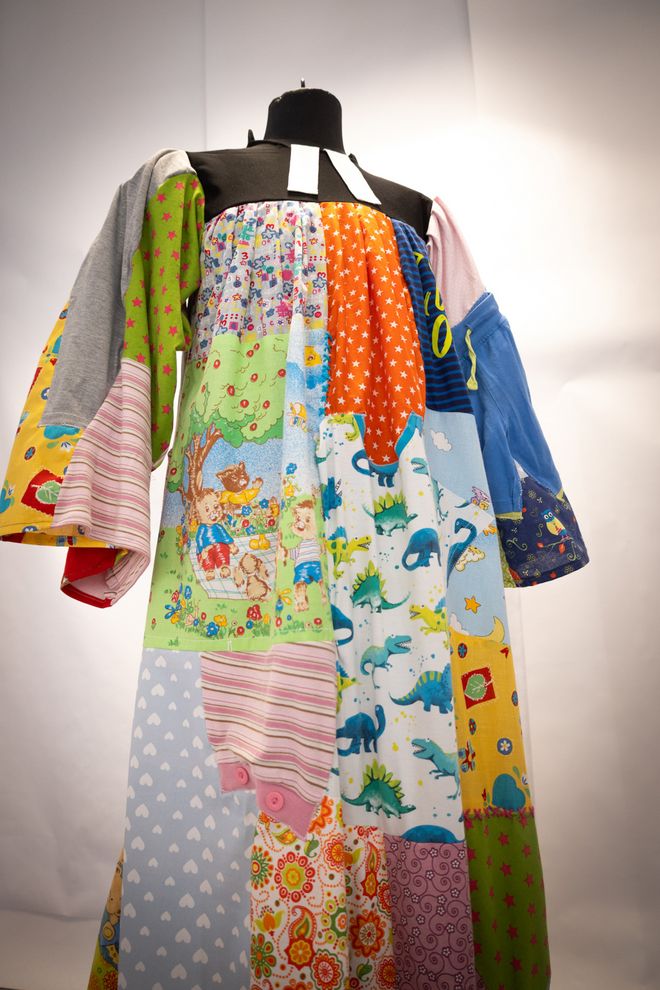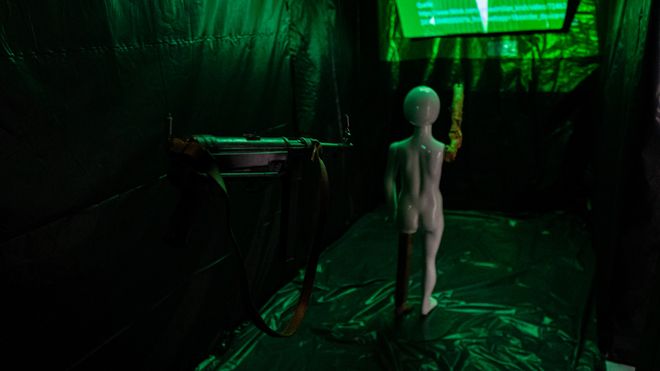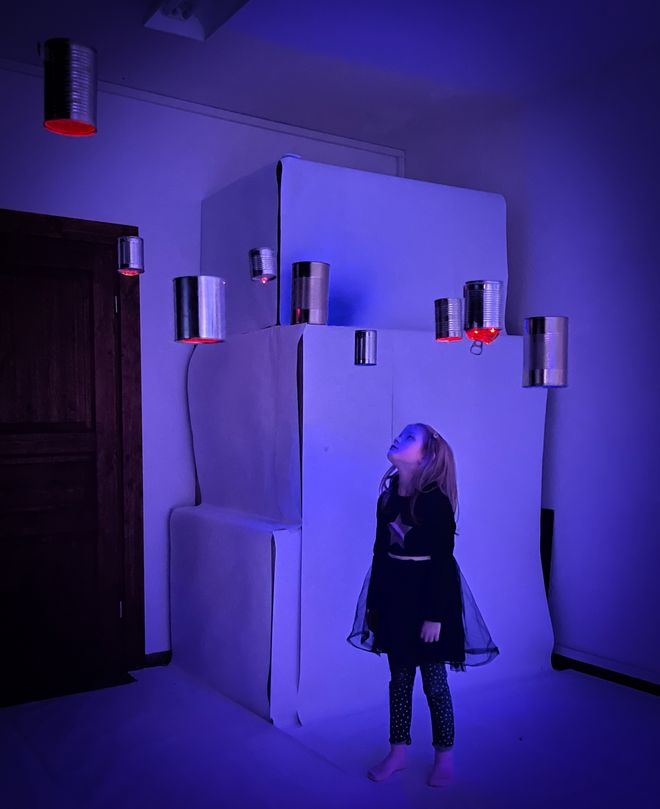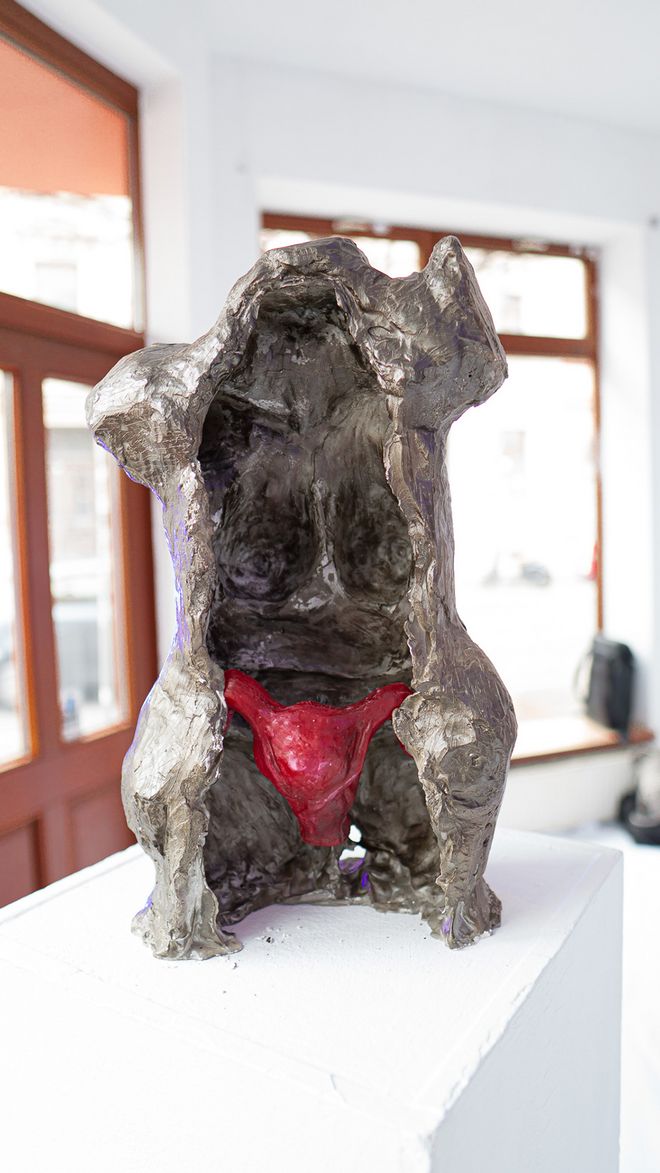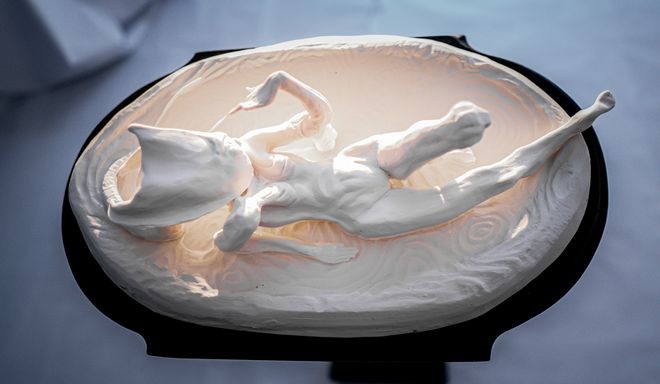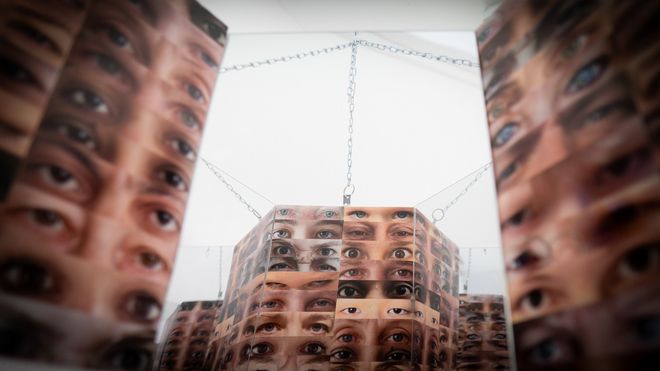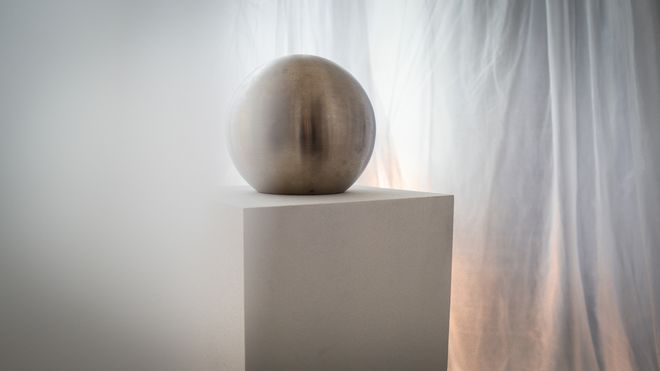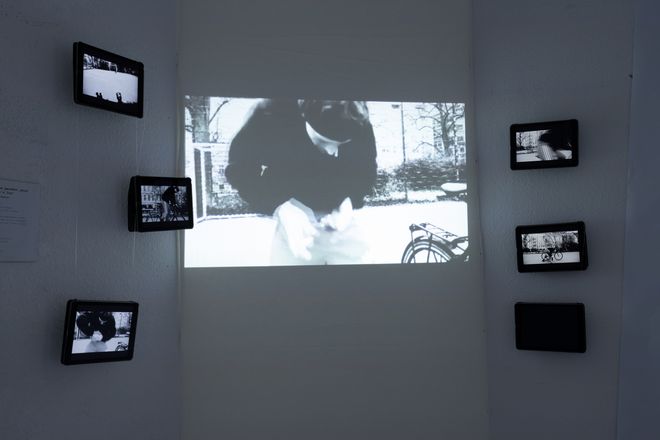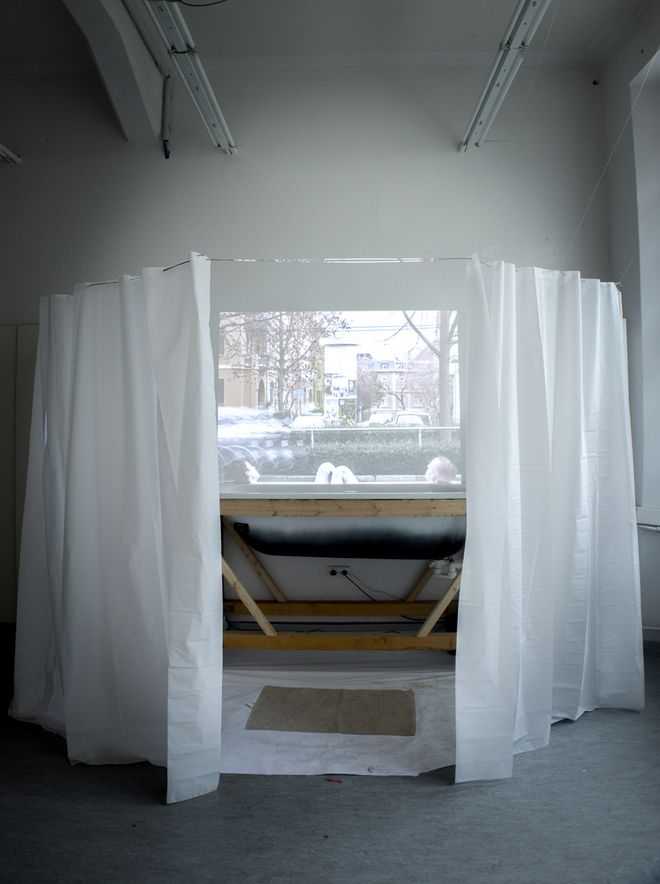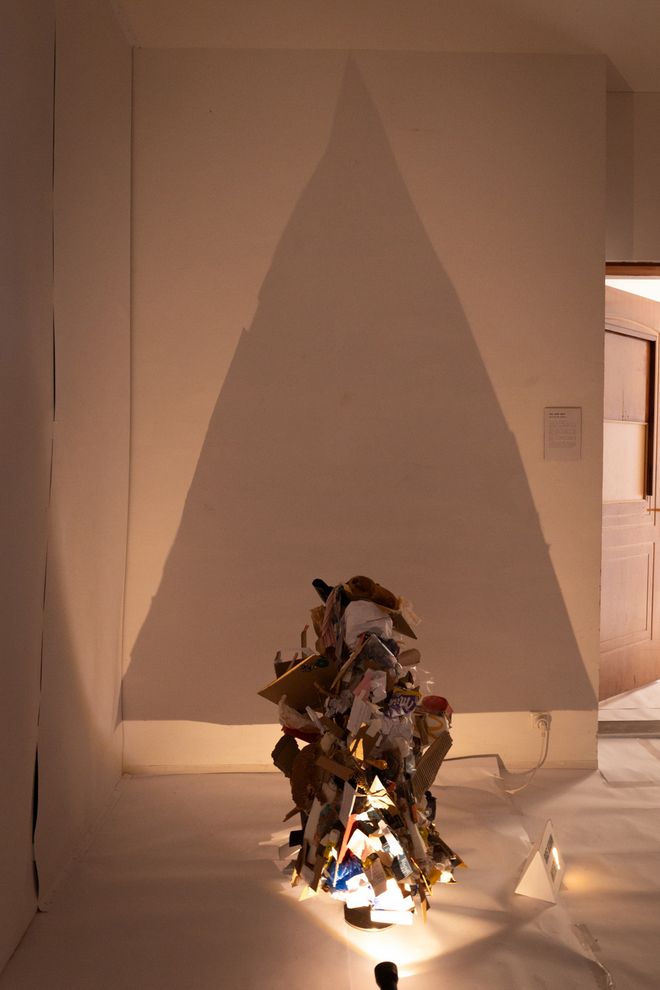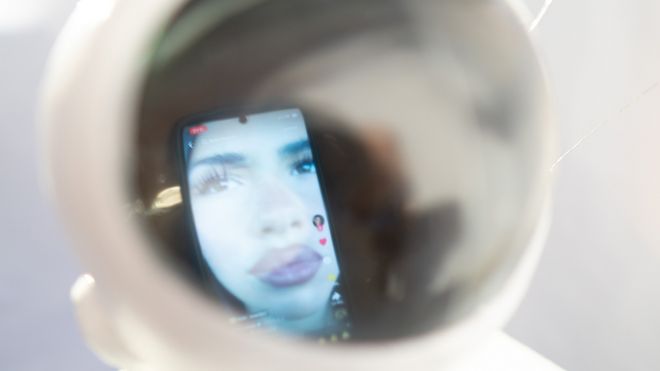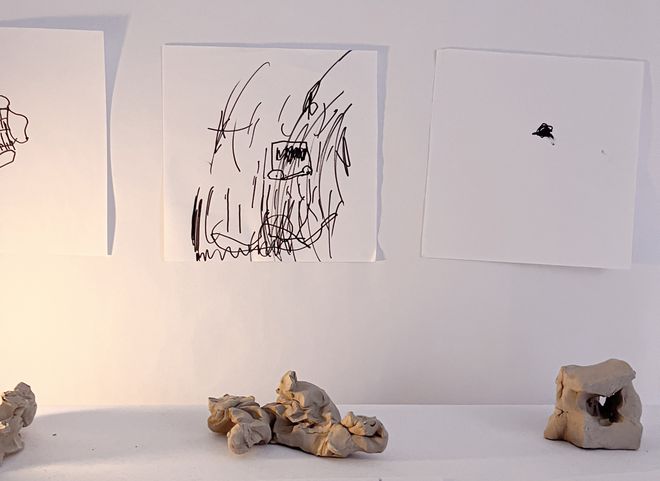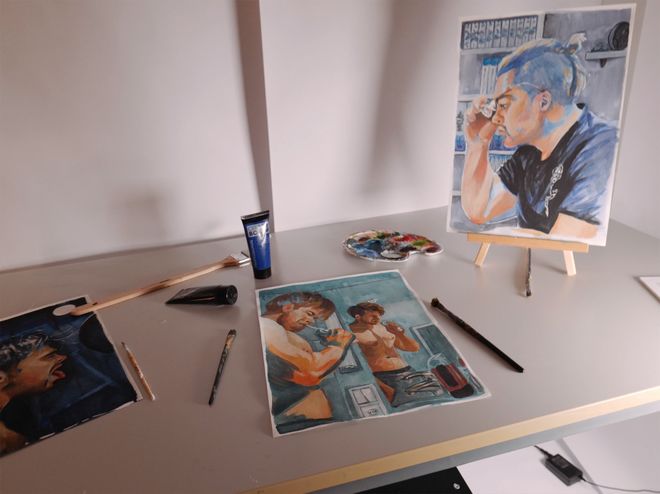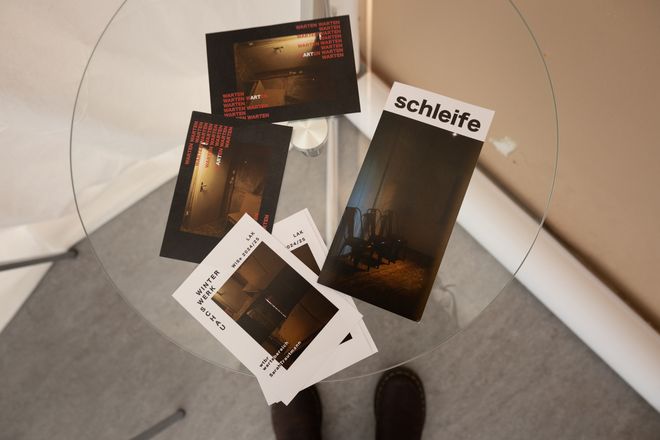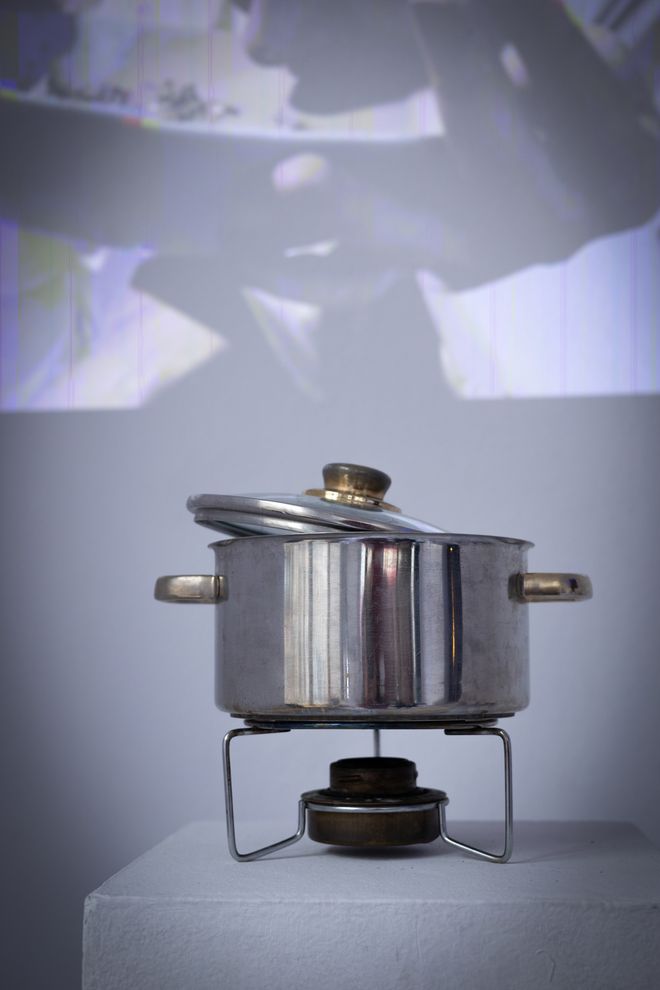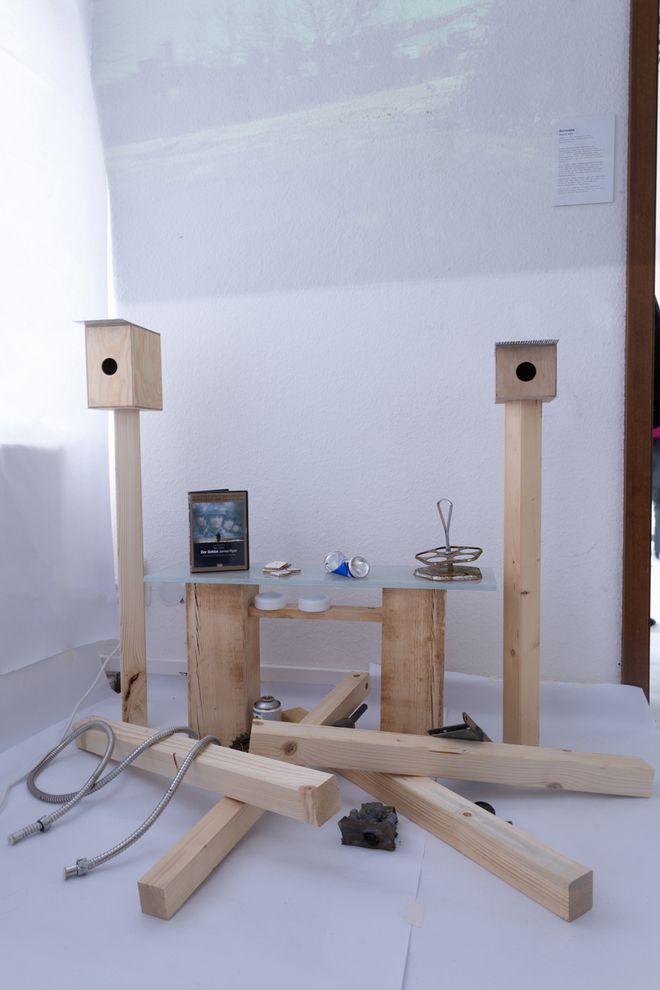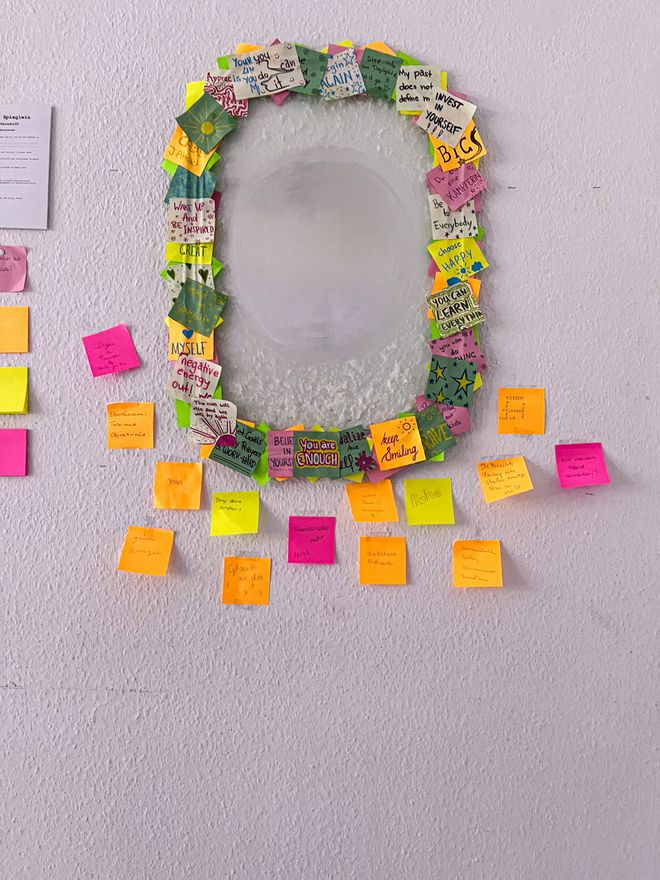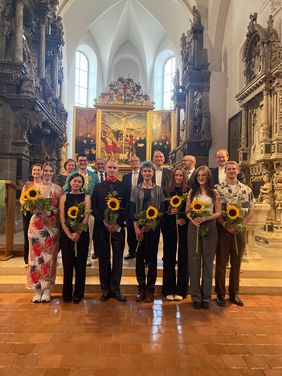
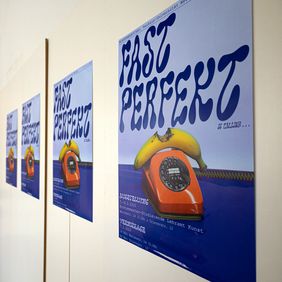
Art education students receive Herder Prize for their critical examination of perfection
Today, digital platforms and social media amplify optimisation logics and beauty paradoxes. This leaves little room for imperfection, exploration and experimentation. A critical examination of these topics is key for prospective art teachers: they learn how important it is to create spaces for experimentation, failure and imperfection both in their own artistic practice and in their classroom. These experiences are also important for their future pupils, who are confronted with exaggerated ideals in social media.
The first-semester students approached the topic from different angles. They addressed matters close to their own hearts such as grief and memory, criticised feminist beauty norms and the objectification of women, and reflected philosophically on perfection, social vulnerability and authenticity. The outcome is sculptures, installations, sound works, projections, reflections and paintings that were produced in a variety of formats using different materials.
Christian Andrés Parra Sánchez, Artistic Associate from the Professorship for Art and its Didactics, explains: »The students examined the ubiquitous images of perfection of our time – these preoccupy young people every single day, especially on social media. We thus follow Herder’s insight that perfection is never universal. Diversity, processuality and transformation are constants of human existence. Hence we don’t see mistakes as shortcomings, but rather as sources of new perspectives.« Catalina Giraldo Vélez, who led the course together with Parra Sánchez, adds: »The students not only addressed perfection as a social requirement, but also found the courage to address their own insecurities and ruptures.«
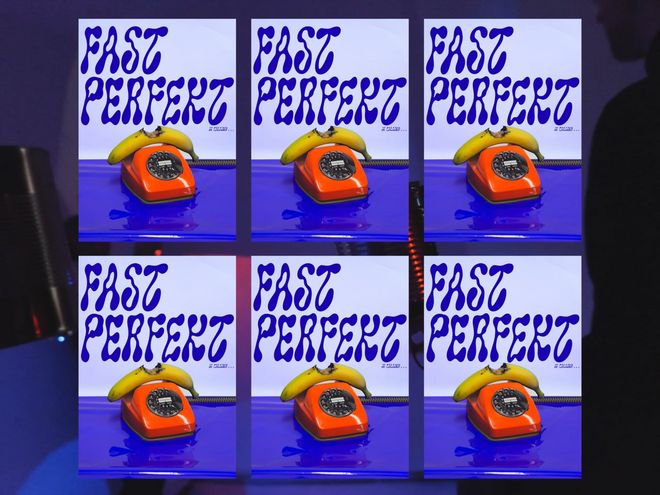
„Fast Perfekt“ - Ausstellung Winterwerkschau 2025
Click the Play button to load and view external content from Vimeo.com.
Automatically load and view external content from Vimeo.com (You can change this setting at any time via our »Data protection policy«.)
Henrich Herbst, Superintendent of the Weimar Church District, explained at the award ceremony in Weimar’s St. Peter and Paul town church: »The work »Almost Perfect« (Fast Perfekt) questions the contemporary narratives of perfection and renders them visible. In doing so, it refers to the Christian view of humanity that recognises the limitations and imperfections of humankind.« According to the jury, the work takes up Herder’s fundamental insight that ideas of perfection are culturally and historically conditioned.
All 20 of the project outcomes can be explored online: www.uni-weimar.de/de/kunst-und-gestaltung/professuren/kunst-und-ihre-didaktik/personen/christian-andres-parra-sanchez/lehre-und-vermittlung/fast-perfekt-wise-24-25/fast-perfekt-projekte
About the award:
This year, the Herder Prize is being conferred for the fourteenth time. With this award, the award benefactors (the Evangelical-Lutheran Church District of Weimar, the parish of Weimar, the Diakoniestiftung Weimar Bad Lobenstein and the Sophien- und Hufeland-Klinikum Weimar) acknowledge the innovative art education project, which addresses and discusses socially relevant issues through art.
The introductory project »Almost Perfect«(Fast Perfekt) was completed in the winter semester 2024/25. Led by Catalina Giraldo Vélez and Christian Andrés Parra Sánchez, it was part of the teacher training programme in Fine Art Education (Secondary Schools) (»Lehramt an Gymnasien Kunst«) of the Professorship for Art and its Didactics.

